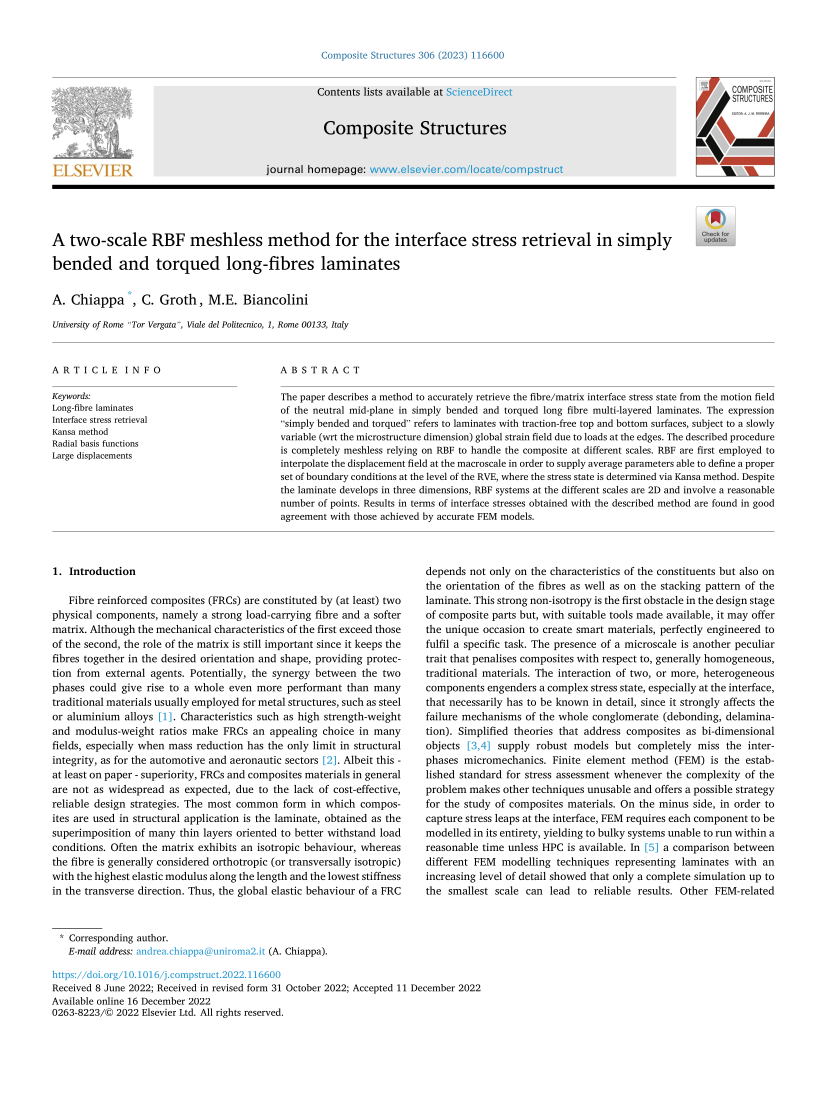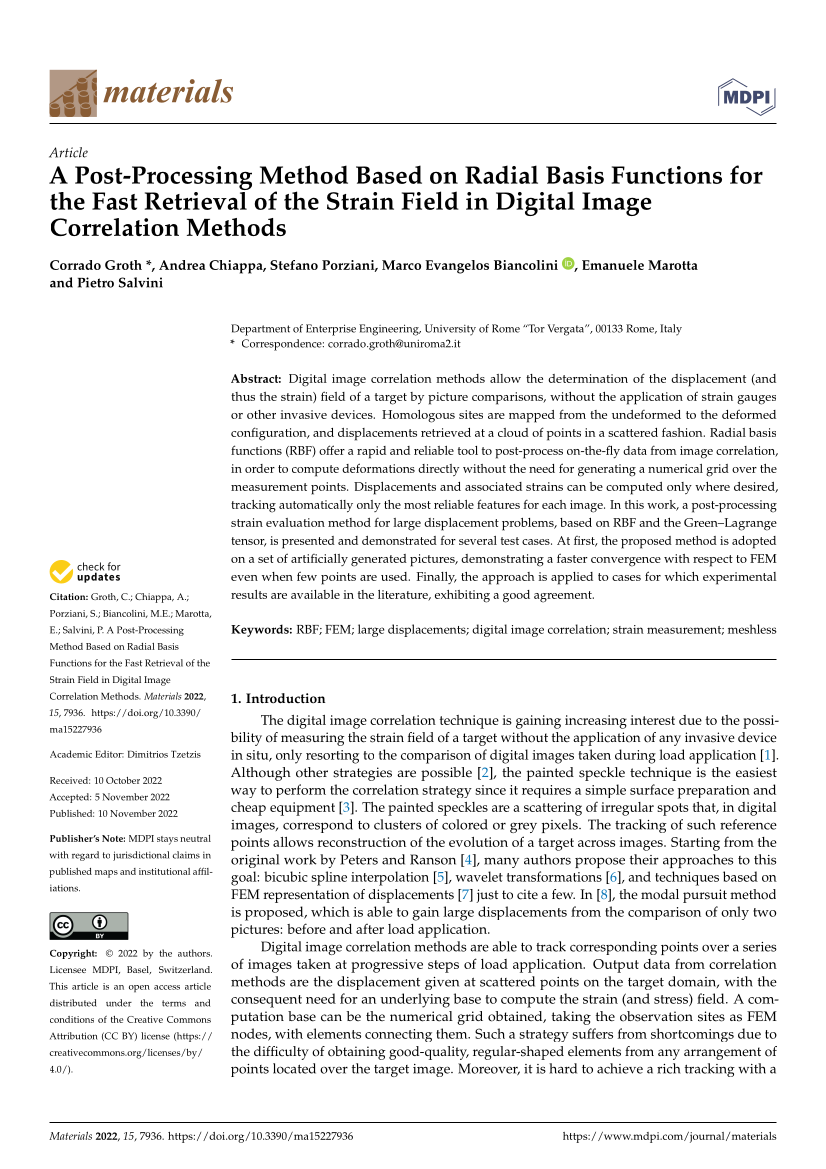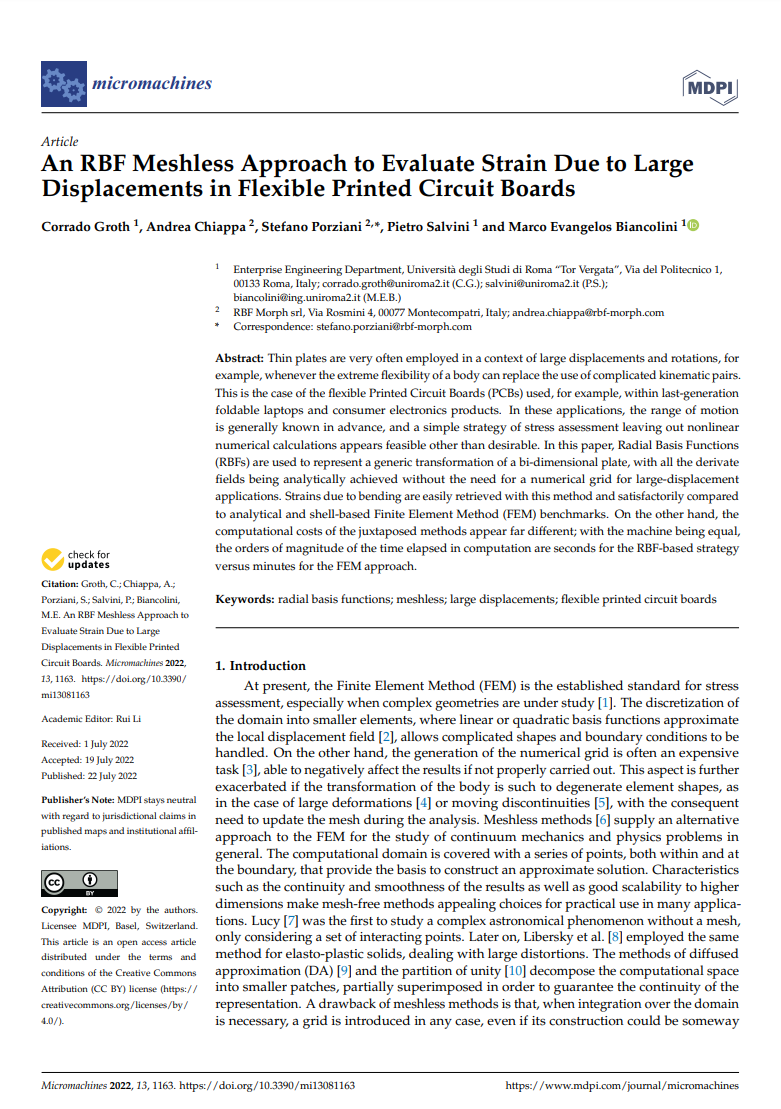New paper: A two-scale RBF meshless method for the interface stress retrieval in simply bended and torqued long-fibres laminates

We have just released Our new work focused on the meshless interface stress retrieval for long fiber composites.
Chiappa, A.; Groth, C.; Biancolini, M.E. “A two-scale RBF meshless method for the interface stress retrieval in simply bended and torqued long-fibres laminates”. Composite Structures 2023, Volume 306, 116600. https://doi.org/10.1016/j.compstruct.2022.116600
Abstract:
The paper describes a method to accurately retrieve the fibre/matrix interface stress state from the motion field of the neutral mid-plane in simply bended and torqued long fibre multi-layered laminates. The expression “simply bended and torqued” refers to laminates with traction-free top and bottom surfaces, subject to a slowly variable (wrt the microstructure dimension) global strain field due to loads at the edges. The described procedure is completely meshless relying on RBF to handle the composite at different scales. RBF are first employed to interpolate the displacement field at the macroscale in order to supply average parameters able to define a proper set of boundary conditions at the level of the RVE, where the stress state is determined via Kansa method. Despite the laminate develops in three dimensions, RBF systems at the different scales are 2D and involve a reasonable number of points. Results in terms of interface stresses obtained with the described method are found in good agreement with those achieved by accurate FEM models.
The paper can be downloaded or read at this link: https://authors.elsevier.com/a/1gI6Gx-7hoPI8
For the first 50 days this work can be read or downloaded in free access.



Comments